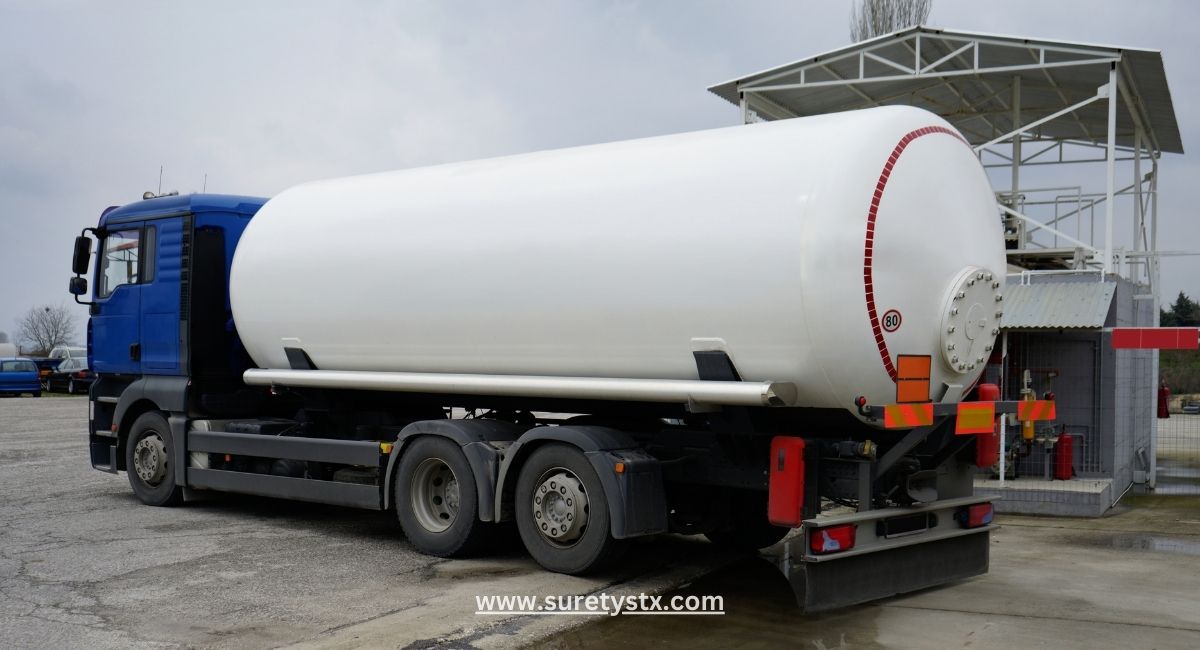Get an Instant Quote on Oil and Gas Conformance (Single) Bond
Introduction
From our perspective, operating a single oil or gas well in Michigan involves more than drilling and extraction—it carries a direct obligation to restore the land and comply with state conservation rules. For operators to move forward with permitting, the Michigan Department of Environment, Great Lakes, and Energy (EGLE) requires a Michigan – Oil and Gas Conformance (Single) Bond. This bond isn't just another form—it's a financial promise that the well site will be properly maintained, closed, and reclaimed once operations end.
This single-well bond serves as an alternative to blanket bonding, making it ideal for small-scale producers or those just starting in the industry. It guarantees that the operator will plug the well, remove equipment, and restore the surface in accordance with Part 615 of Michigan’s Natural Resources and Environmental Protection Act. It functions much like the City of Eastpointe, MI - Right of Way Permit (Single Job) Bond, which guarantees public infrastructure will be restored after excavation. Both bonds exist to protect the public interest when private development intersects with shared resources.
Why Oil and Gas Bonds Confuse Operators
We’ve noticed that many operators misunderstand the true purpose of the Michigan – Oil and Gas Conformance (Single) Bond. Some think of it as optional insurance, others don’t realize that even a single-well operator must post a bond to receive a drilling permit. This confusion can slow down project timelines and lead to non-compliance with state regulations.
It’s not uncommon for the same misunderstanding to arise in other industries, such as education. School owners, for example, often misinterpret the requirements behind the Michigan - Post-Secondary School Bond, believing it protects them instead of their students. In both cases, these bonds are public-facing protections, not self-insurance tools.
The key issue lies in not knowing who the bond protects and when it's required. Swiftbonds helps bridge this gap with simple, clear guidance tailored to Michigan operators.

Why Swiftbonds Is the Right Fit for Oil and Gas Professionals
Based on our experience, Swiftbonds has worked with dozens of operators across Michigan to obtain the right conformance bond for their project size. Whether you're an independent driller applying for your first permit or a seasoned firm launching a single well outside a primary field, we understand exactly what the EGLE expects.
Just like we’ve helped clients meet educational bonding rules through the Michigan - Post-Secondary School Bond, we guide operators through the oil and gas compliance process. Our team knows the nuances of Michigan’s Part 615 bonding regulations and handles the surety process from start to finish.
Swiftbonds provides fast approvals, competitive rates, and access to underwriters familiar with Michigan's energy sector—making bonding less of a barrier and more of a step forward.

Steps to Secure a Conformance Bond
What we’ve discovered is that securing a Michigan – Oil and Gas Conformance (Single) Bond is easier when the path is clearly mapped out:
-
Identify the Bond Amount
EGLE typically sets the bond amount based on well depth and projected environmental risk. Confirm the requirement for your specific site. -
Submit a Simple Application
With Swiftbonds, you’ll complete a streamlined bond application. We may request basic business and financial information. -
Review and Approve a Quote
Once we evaluate your application, we’ll send a quote for the bond premium—often with same-day turnaround. -
Receive the Bond
After payment, we issue the bond and send it directly to you or EGLE for permit filing. -
Stay Compliant After Drilling
Keep the bond active while the well is in operation. Once it’s plugged and restored, you can request a release from the state.
The bond process resembles that of the City of Eastpointe, MI - Right of Way Permit (Single Job) Bond, where local authorities require a permit bond before approving excavation in public rights-of-way. In both cases, the process is regulatory and predictable with the right support.

Consequences of Skipping the Bond
In our observation, failing to obtain the Michigan – Oil and Gas Conformance (Single) Bond puts operators at immediate legal risk. Without the bond, EGLE won’t issue a permit to drill. If the bond lapses during operation, the well is considered out of compliance, which could trigger enforcement actions, including fines or forced closure.
The same regulatory pressure applies in education. A school operating without a Michigan - Post-Secondary School Bond may lose its license, which directly affects students and finances. In both industries, the bond functions as a regulatory gatekeeper—no bond, no operation.
Failing to meet bonding standards damages more than your permit status. It harms your reputation with regulators and makes future approvals harder to secure.

How a Bond Builds Long-Term Trust
We’ve learned that having a valid Michigan – Oil and Gas Conformance (Single) Bond doesn’t just meet a requirement—it builds legitimacy. Whether you're a one-well operation or expanding into new territory, bonding shows that your business is financially responsible and committed to responsible site stewardship.
It’s a similar signal of trust as the Michigan - Post-Secondary School Bond, where bonding protects students and regulators from bad actors. In oil and gas, the bond protects the public from abandoned wells, improper restoration, or environmental hazards.
Being bonded signals that you’re not cutting corners. It shows you’re planning ahead—and that earns respect from regulators, landowners, and the community.
Conclusion
We’ve come to appreciate that the Michigan – Oil and Gas Conformance (Single) Bond is far more than just a permit requirement. It represents your commitment to doing things right—from start to finish. Whether you’re drilling your first well or expanding operations, this bond protects Michigan’s land, water, and communities while allowing your project to move forward legally.
At Swiftbonds, we make it simple. We help you meet bonding requirements fast, and with confidence—just like we do for permits like the City of Eastpointe, MI - Right of Way Permit (Single Job) Bond or education-based compliance through the Michigan - Post-Secondary School Bond.
Let Swiftbonds be the surety partner you can trust as you build your energy future in Michigan.
Frequently Asked Questions
Who is required to obtain a Michigan – Oil and Gas Conformance (Single) Bond?
We’ve often noticed confusion here. Anyone applying for a permit to drill a single well in Michigan, under Part 615, must post this bond with EGLE before beginning operations.
How is the bond amount determined?
We’ve often noticed operators unsure about the amount. EGLE sets bond amounts based on well depth, location, and potential environmental impact. You must confirm your amount before applying.
Can this bond be used for multiple wells?
We’ve often noticed this question. No. This bond covers only one well. If you plan to operate multiple wells, EGLE may require a blanket bond instead.
What happens to the bond once the well is plugged and restored?
We’ve often noticed concern about release timing. Once EGLE confirms the well site has been properly restored, you can apply to release the bond obligation.
Can Swiftbonds help with other bonds like right-of-way or education?
We’ve often noticed clients needing support across industries. Yes—Swiftbonds regularly issues bonds like the City of Eastpointe, MI - Right of Way Permit (Single Job) Bond and the Michigan - Post-Secondary School Bond, ensuring compliance for businesses across Michigan.


